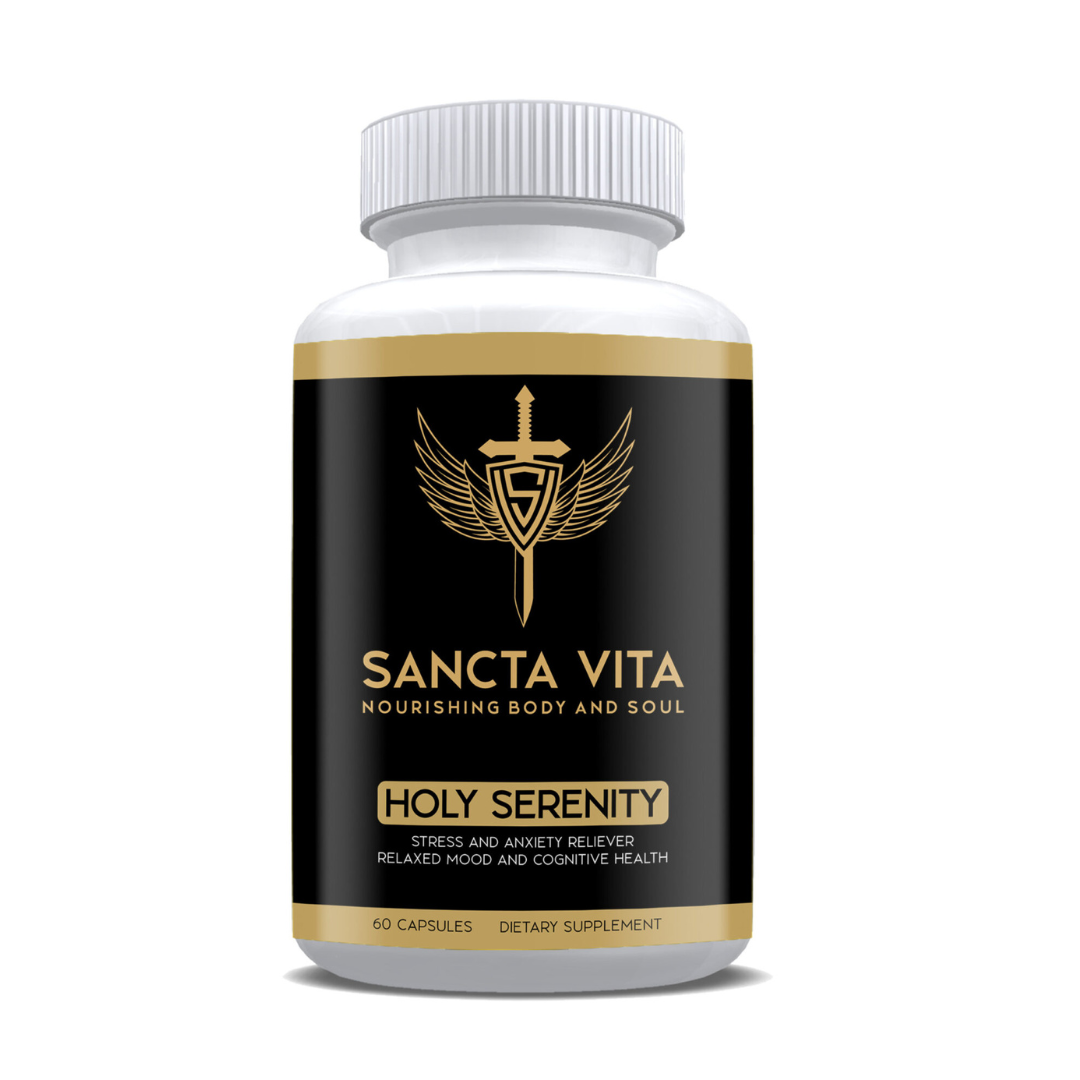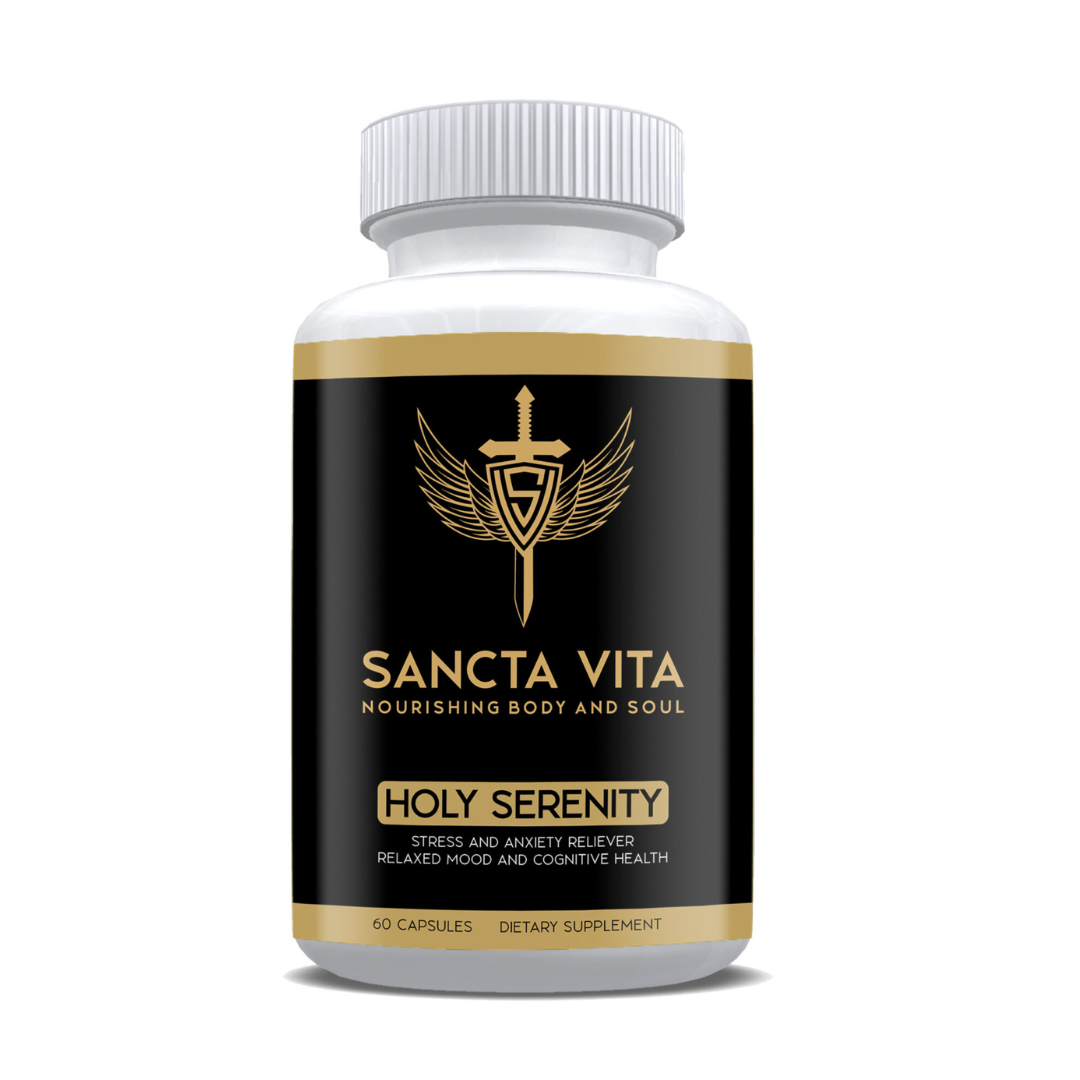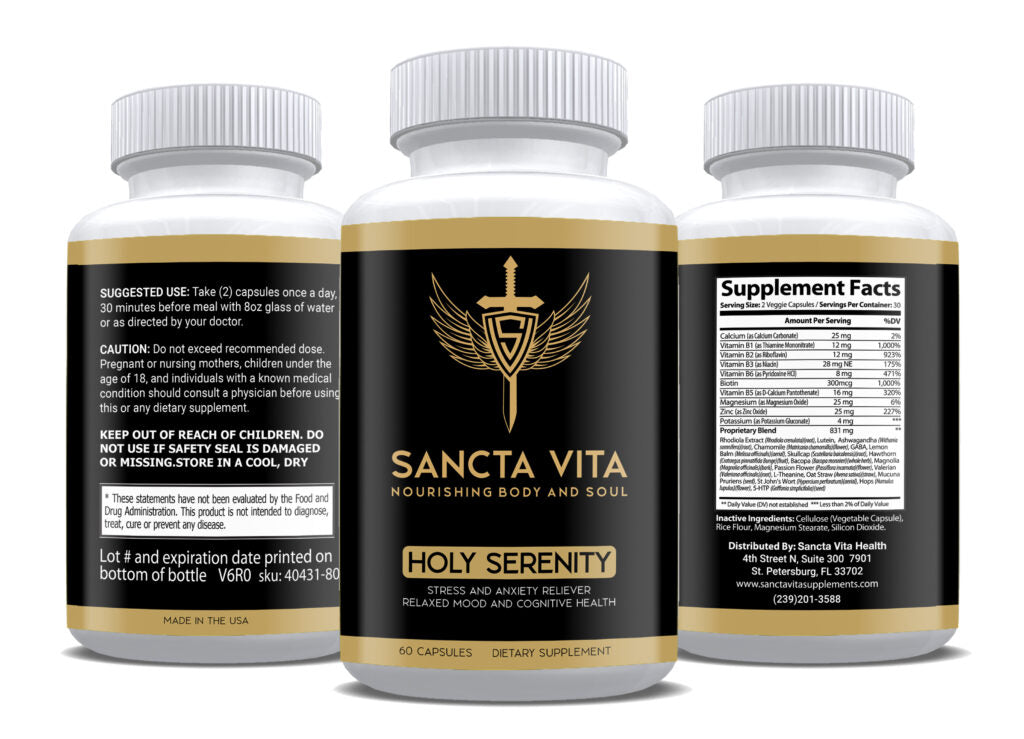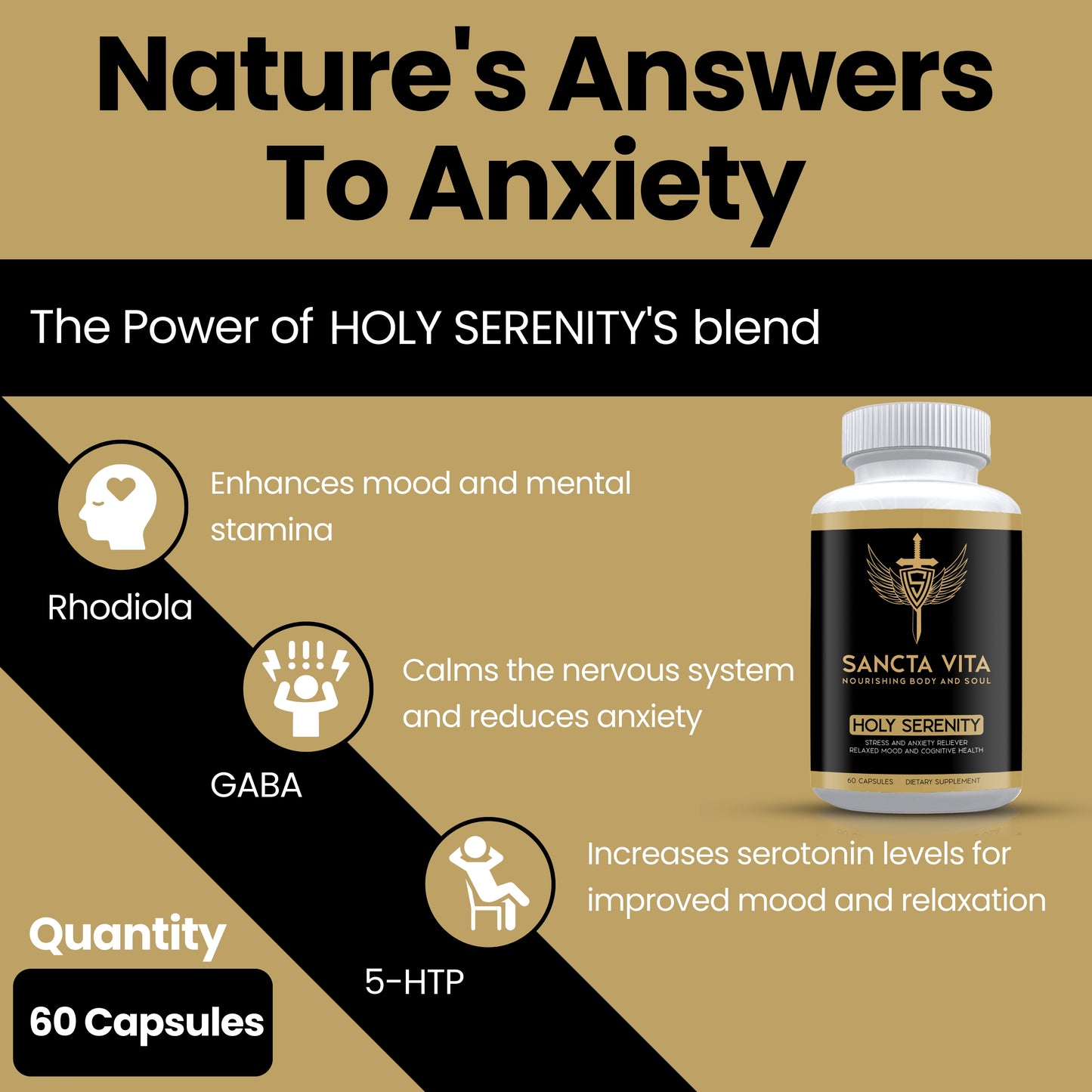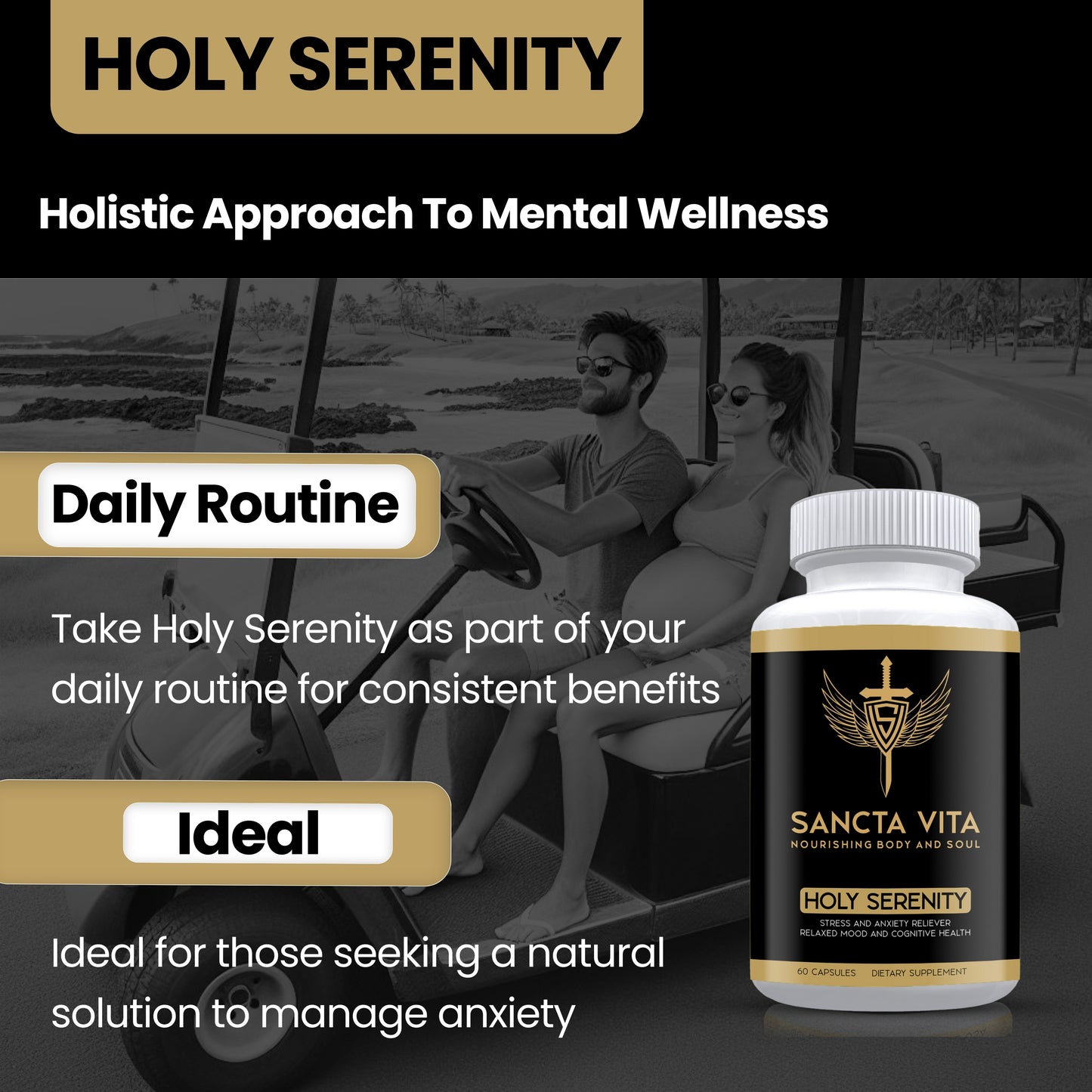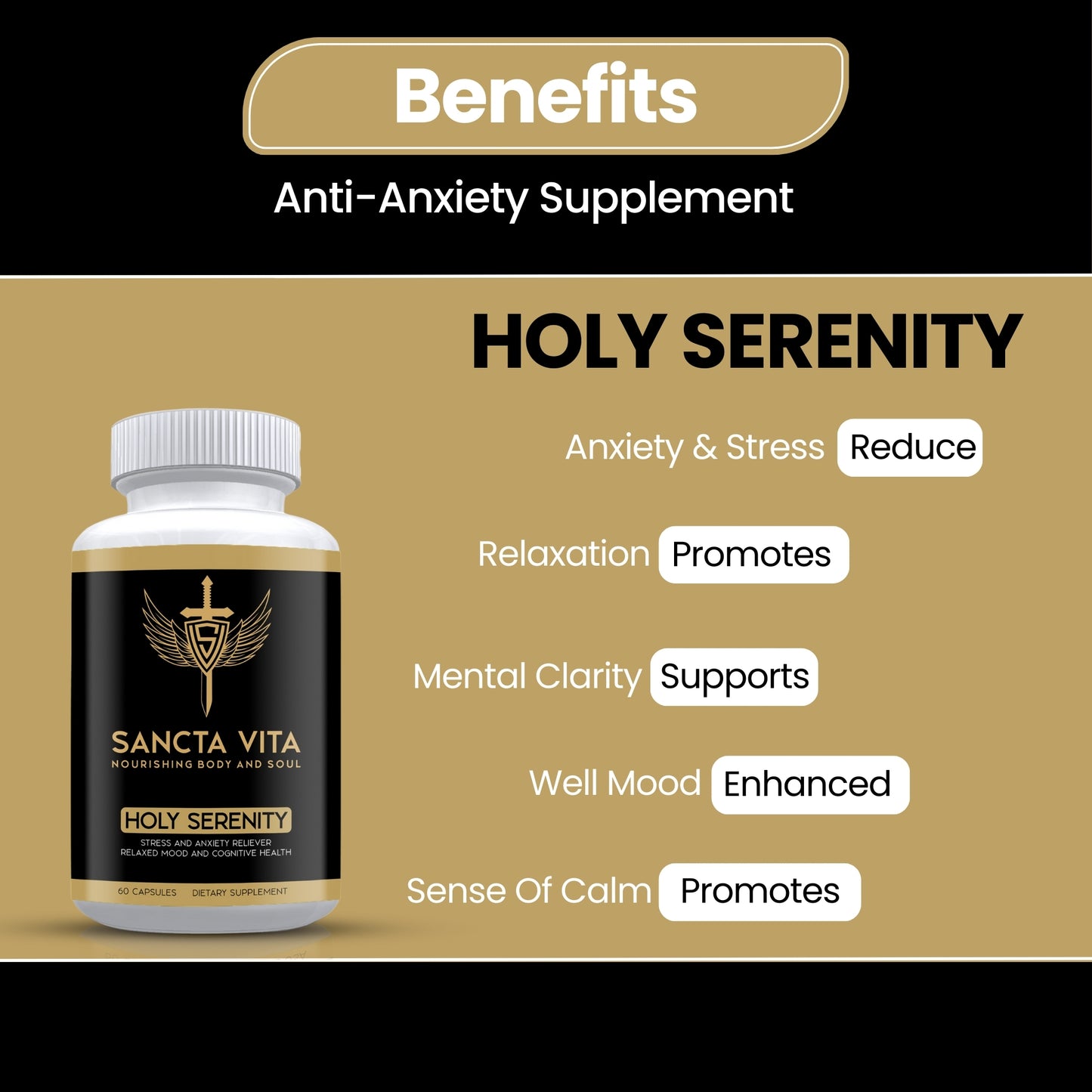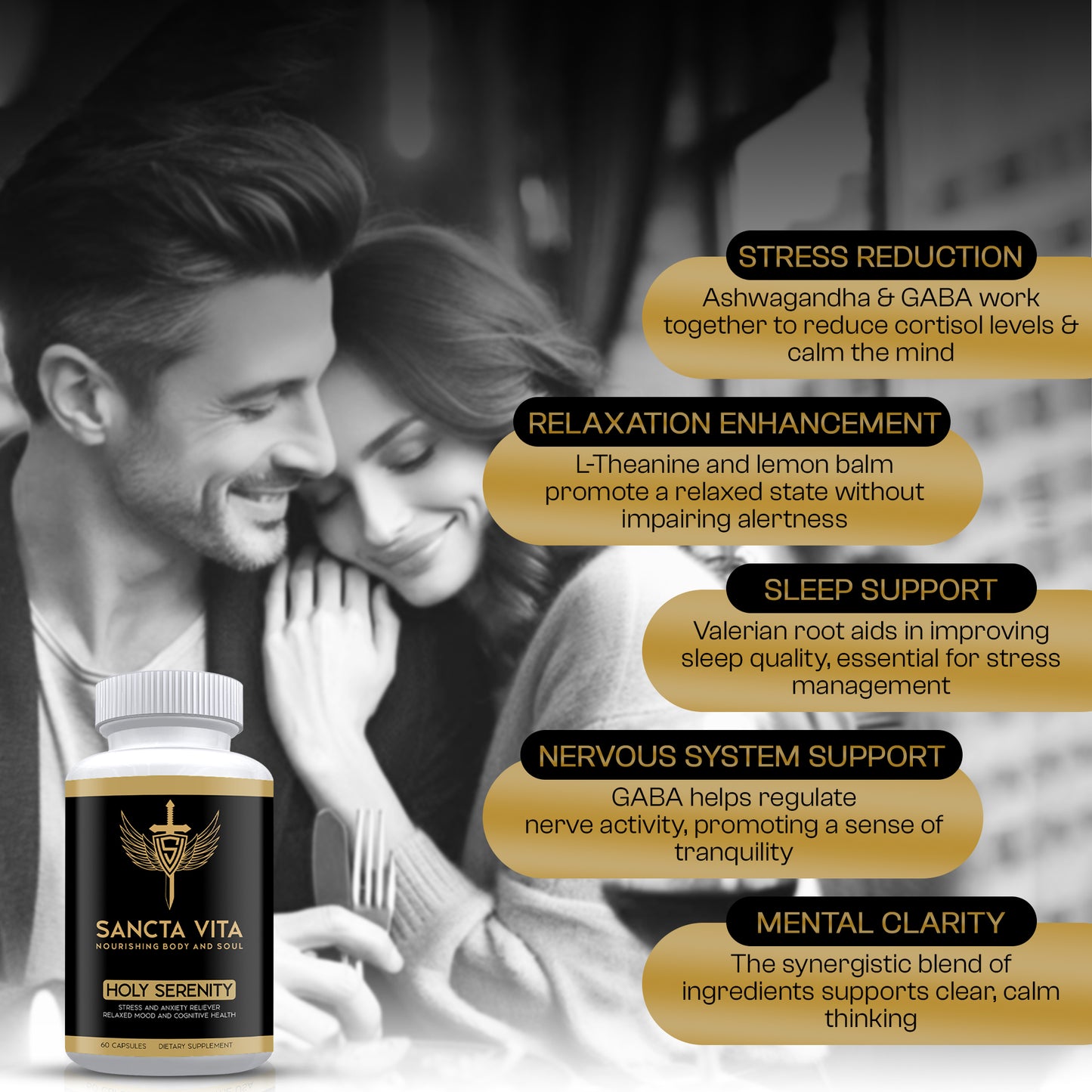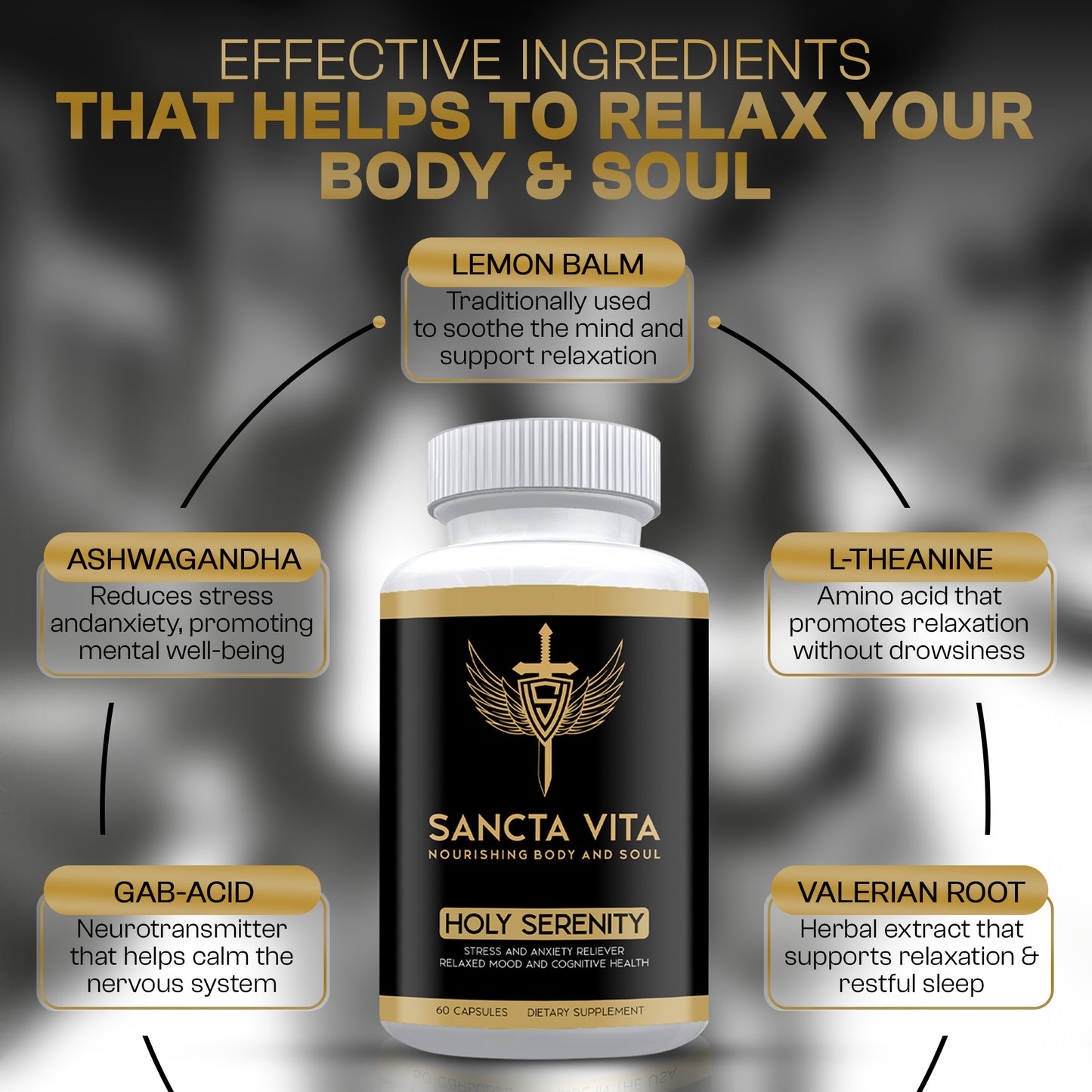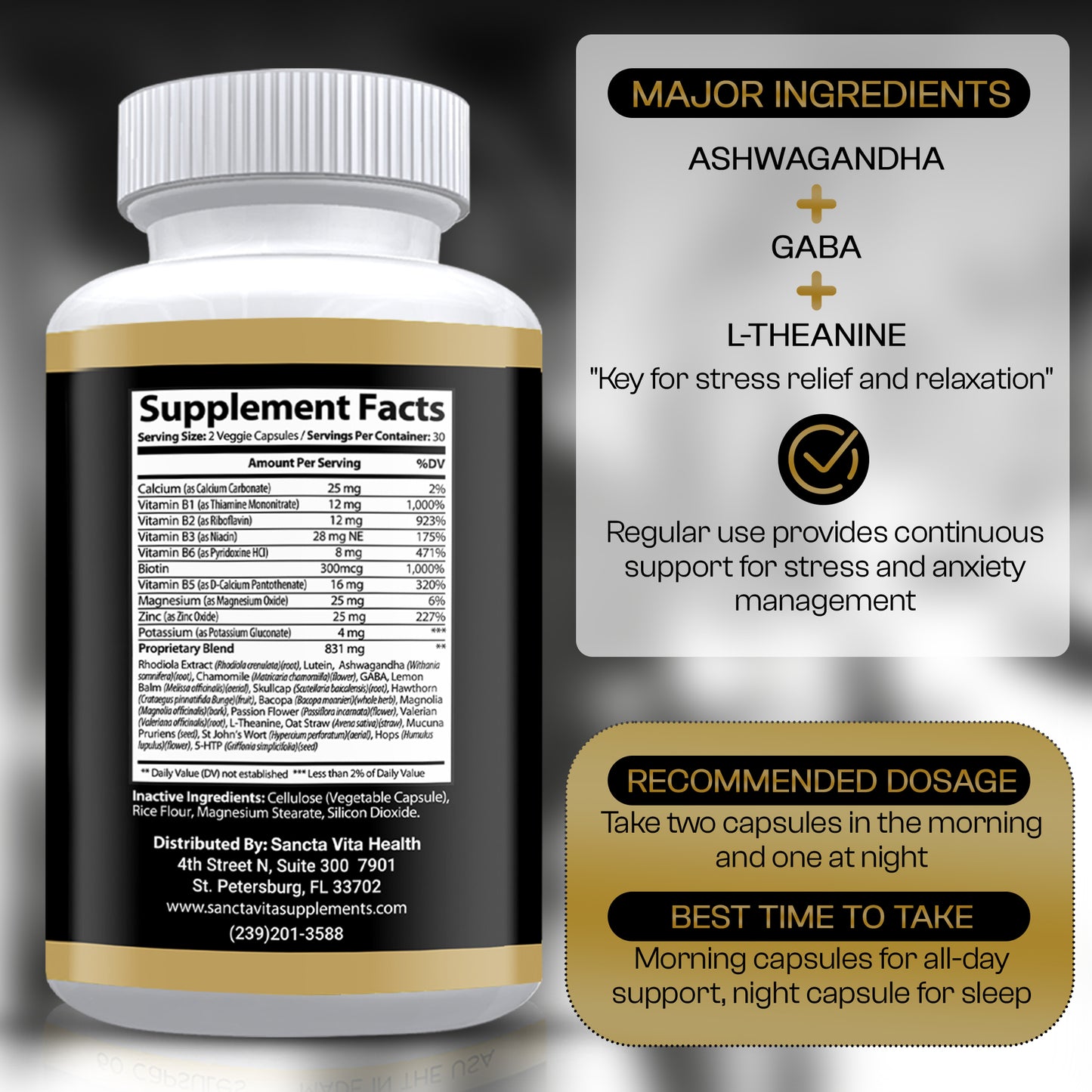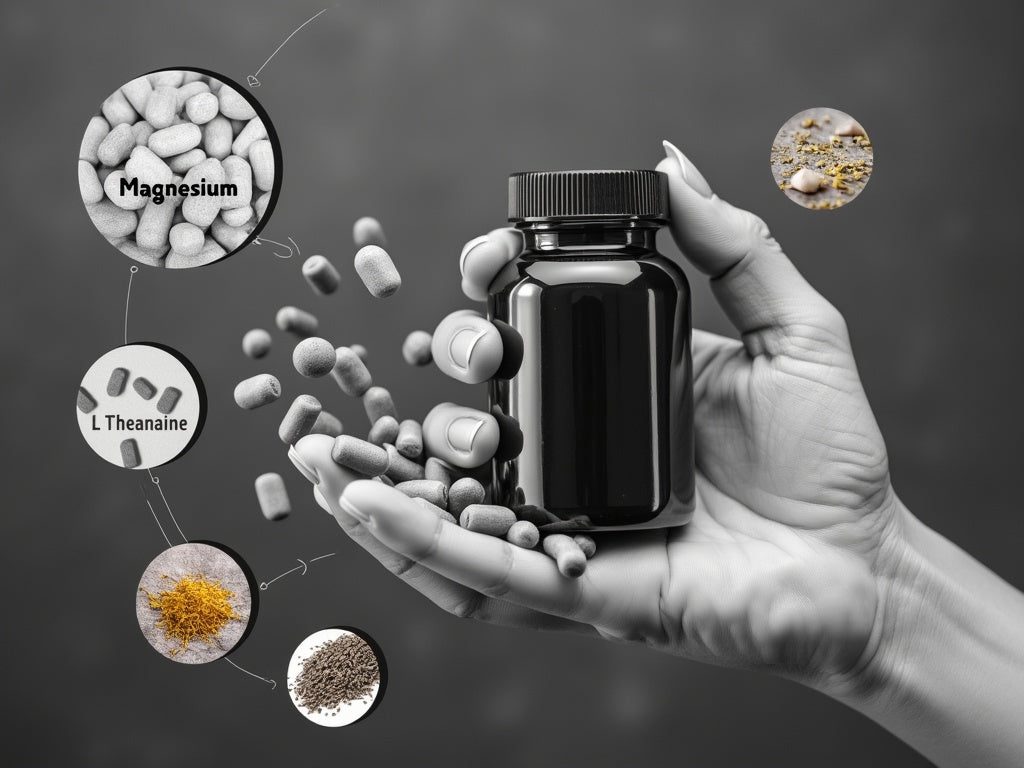
Top 5 Dietary Supplements for Anxiety Relief
Share
Dietary supplements for anxiety have gained significant attention as natural alternatives to traditional medications. With over 264 million people worldwide suffering from anxiety disorders, these supplements offer potential relief by supporting neurotransmitter function, regulating cortisol levels, and balancing the nervous system.
Key Takeaways:
- Magnesium, saffron, and L-theanine are among the top evidence-backed supplements for anxiety relief
- Supplements work by enhancing GABA and reducing cortisol levels in the body
- 40% of anxiety sufferers report improvements with supplements when combined with lifestyle changes
- Third-party certifications (NSF, USP) ensure supplement safety and quality
- Consulting healthcare professionals is crucial before starting any new supplement regimen
Understanding Dietary Supplements for Anxiety
Dietary supplements for anxiety are natural or herbal products designed to alleviate anxiety symptoms without relying on traditional medications. As the prevalence of anxiety disorders continues to rise, there's a growing interest in natural solutions and alternatives to pharmaceutical interventions. These supplements offer a promising avenue for those seeking to manage their anxiety through more holistic means.
The appeal of dietary supplements lies in their potential to support mental health without the side effects often associated with prescription medications. However, it's important to note that while these supplements can be effective, they should be used as part of a comprehensive approach to anxiety management, which may include therapy, lifestyle changes, and in some cases, medication under professional guidance.

How Dietary Supplements Help with Anxiety
The science behind dietary supplements for anxiety is rooted in their ability to support neurotransmitter function, regulate cortisol levels, and balance the nervous system. Many of these supplements work by enhancing GABA (gamma-aminobutyric acid), a neurotransmitter that promotes relaxation and reduces anxiety.
For instance, magnesium plays a crucial role in supporting neurotransmitter pathways, particularly those involving GABA and serotonin. It also helps stabilize cortisol production, which is often elevated in individuals experiencing chronic anxiety. This multi-faceted approach explains why 40% of anxiety sufferers report improvements when combining supplements with lifestyle changes.
Other supplements, like L-theanine, interact with alpha brain waves to promote a state of relaxed focus, offering quick relief from acute anxiety symptoms. Understanding these mechanisms can help individuals make informed decisions about which supplements may be most effective for their specific anxiety concerns.
Top 5 Evidence-Backed Dietary Supplements for Anxiety
Let's explore the top five dietary supplements that have shown promising results in managing anxiety symptoms:
1. Magnesium
Magnesium is a powerhouse mineral that regulates the nervous system, maintains GABA levels, and decreases cortisol. Studies have shown that a daily dose of 440mg can be as effective as some antidepressants for mood improvement. The most popular forms for anxiety relief are magnesium glycinate and magnesium taurate, which are well-absorbed and less likely to cause gastrointestinal side effects.
2. Saffron
This exotic spice has demonstrated anti-anxiety effects comparable to fluoxetine in clinical trials. A 12-week study found that 100 mg of saffron daily significantly reduced anxiety symptoms. A comprehensive review of 100 studies in 2018 further confirmed its anxiety-reducing properties. However, pregnant individuals should consult their doctors before using saffron supplements.
3. L-Theanine
L-Theanine, an amino acid found in tea leaves, promotes relaxed focus by interacting with alpha brain waves. Effective doses range from 200-400mg daily, with one clinical study reporting a 48% reduction in anxiety levels. One of the advantages of L-Theanine is its rapid action, often taking effect within 30-60 minutes of consumption.
4. Vitamin D
Essential for brain function and mood regulation, Vitamin D deficiency is common among individuals with anxiety disorders. A study found that 1,600 IU of Vitamin D daily for 6 months led to significant improvements in anxiety symptoms. This underscores the importance of maintaining adequate Vitamin D levels for mental health.
5. Omega-3 Fatty Acids
Known for their powerful anti-inflammatory effects, omega-3 fatty acids also support brain health and function. Research has shown that 2,000 mg daily can significantly improve anxiety symptoms. The specific omega-3s, DHA and EPA, act as fuel in the brain for neurotransmission, enhancing overall cognitive function and mood regulation.
Safety and Choosing the Best Dietary Supplements for Anxiety
When selecting dietary supplements for anxiety, safety should be a top priority. Always consult healthcare professionals before starting any new supplement regimen, especially if you're taking medications or have pre-existing health conditions.
Look for supplements with third-party certifications such as NSF or USP labels. These certifications ensure that the product contains what it claims and is free from harmful contaminants. Choose brands with positive reviews and transparent ingredient sourcing practices.
Be aware of potential side effects. For instance, magnesium supplements may cause mild gastrointestinal issues in some individuals. Opting for magnesium glycinate can help minimize these effects. Start with lower doses and gradually increase as tolerated.
Remember, while these supplements can be effective, they work best as part of a comprehensive approach to mental health. Combine them with lifestyle changes, such as regular exercise, a balanced diet, and stress-reduction techniques for optimal results.
Frequently Asked Questions
1. What are the best dietary supplements for anxiety?
The most effective dietary supplements for anxiety, backed by scientific research, include magnesium, saffron, L-theanine, Vitamin D, and omega-3 fatty acids. Each works through different mechanisms to support mental health and reduce anxiety symptoms.
2. Can I take dietary supplements for anxiety with medications?
It's crucial to consult with a healthcare professional before combining supplements with medications. Some supplements may interact with anxiety or depression medications, potentially enhancing or interfering with their effects.
3. How long does it take for supplements to help with anxiety?
The timeline varies depending on the supplement and individual. L-theanine may offer relief within 30-60 minutes, while others like magnesium, Vitamin D, and saffron may require 4-12 weeks of consistent use for noticeable improvements.
4. Are dietary supplements for anxiety safe?
Generally, dietary supplements are safe when taken as directed. However, side effects can occur. To ensure safety, choose third-party tested supplements and avoid exceeding recommended dosages. If you experience any adverse reactions, discontinue use and consult a healthcare provider.
5. Can supplements completely replace therapy or medication for anxiety?
No, supplements should not be considered a complete replacement for therapy or prescribed medications. They work best as part of a holistic approach to mental health, complementing traditional treatments and lifestyle changes. Always follow your healthcare professional's advice for managing anxiety.
References
1. World Health Organization. Depression and Other Common Mental Disorders: Global Health Estimates. Geneva: World Health Organization; 2017.
2. Boyle NB, Lawton C, Dye L. The Effects of Magnesium Supplementation on Subjective Anxiety and Stress—A Systematic Review. Nutrients. 2017;9(5):429.
3. Hausenblas HA, Saha D, Dubyak PJ, Anton SD. Saffron (Crocus sativus L.) and major depressive disorder: a meta-analysis of randomized clinical trials. J Integr Med. 2013;11(6):377-383.
4. Hidese S, Ogawa S, Ota M, et al. Effects of L-Theanine Administration on Stress-Related Symptoms and Cognitive Functions in Healthy Adults: A Randomized Controlled Trial. Nutrients. 2019;11(10):2362.
5. Penckofer S, Kouba J, Byrn M, Estwing Ferrans C. Vitamin D and Depression: Where is all the Sunshine? Issues Ment Health Nurs. 2010;31(6):385-393.
6. Su KP, Tseng PT, Lin PY, et al. Association of Use of Omega-3 Polyunsaturated Fatty Acids With Changes in Severity of Anxiety Symptoms: A Systematic Review and Meta-analysis. JAMA Netw Open. 2018;1(5):e182327.

